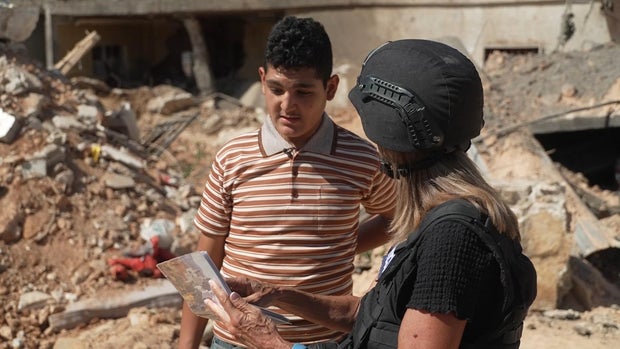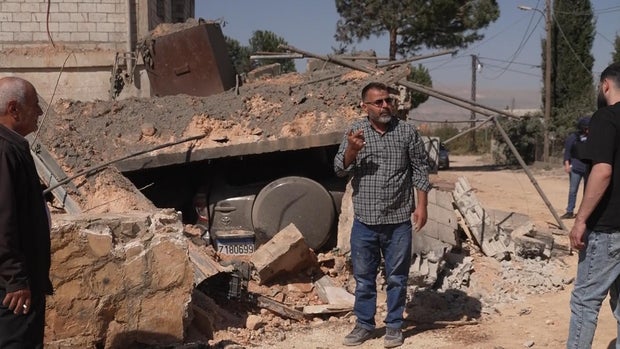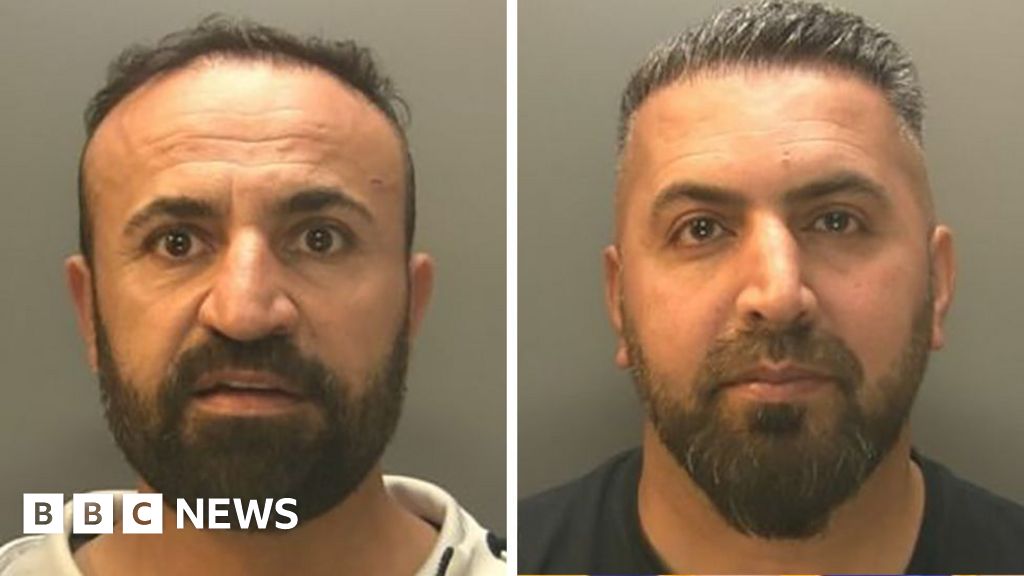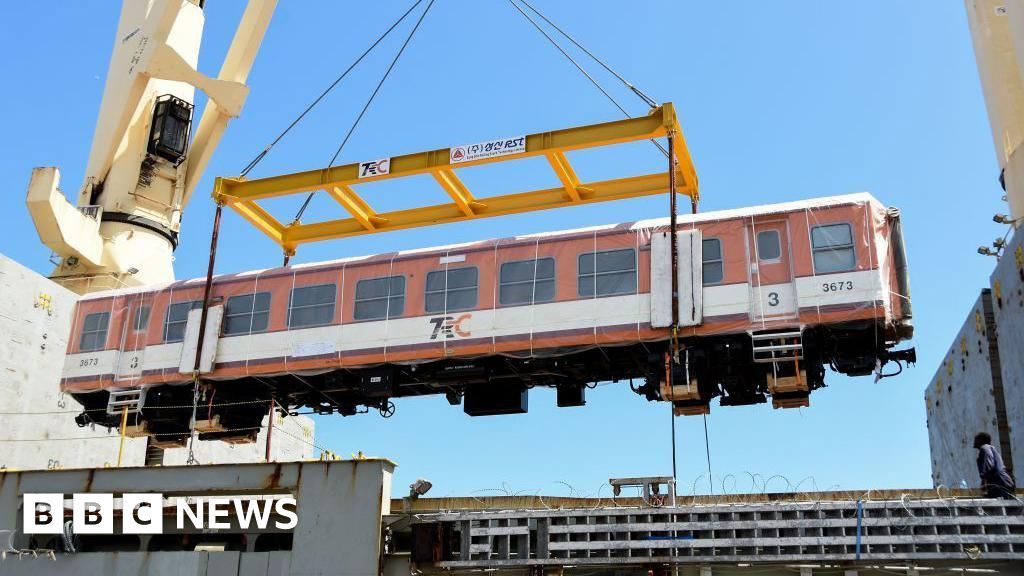Lebanon says Israeli strike kills at least 22
Khodor, southern Lebanon — War came without warning to the village of Khodor in Lebanon's Bekaa Valley. Israel's fight with the Iran-backed group Hezbollah, long designated a terrorist organization by Israel and the U.S., has been focused for weeks in southern Beirut and further south, near the Lebanon-Israel border, where the Israel Defense Forces have ordered tens of thousands of people to evacuate.
One of the deadliest Israeli strikes to date came Thursday evening, when missiles slammed into buildings in central Beirut. Lebanon's caretaker Prime Minister Najib Mikati said 22 civilians were killed and wounded another 139. The Reuters news agency quoted Lebanese security officials as saying the Israeli strike had targeted senior Hezbollah official Wafiq Safa, who survived.
About 20 miles to the east of Beirut, there have been no IDF evacuation orders in Khodor. But there have been airstrikes. Mourners gathered and wept for five people killed in one of them Wednesday. A much-loved schoolteacher and his grandson were among those killed. So was Ahmed Awdeh's father — crushed to death under rubble.
Awdeh's memories of the man he adored have been reduced to a treasured photo album.
 CBS News' Debora Patta and Ahmed Awdeh look at photos of the Lebanese boy's father, who was killed in an Israeli airstrike on their village of Khodor, in Lebanon's eastern Bekaa Valley in early October 2024.
CBS News
CBS News' Debora Patta and Ahmed Awdeh look at photos of the Lebanese boy's father, who was killed in an Israeli airstrike on their village of Khodor, in Lebanon's eastern Bekaa Valley in early October 2024.
CBS News
"My dad was a farmer," the traumatized boy (how old?) told CBS News. "He was kind and loved by all."
For most of the past year, since Hezbollah's Hamas allies in the Gaza Strip sparked the ongoing war there with their Oct. 7, 2023 terrorist attack, the people of Khodor had rarely found themselves in Israel's firing line.
Since the escalation of Israel's parallel war with Hezbollah about two weeks ago, however, the tiny village has been hit repeatedly by Israeli airstrikes. Israel ramped up its fight against Hezbollah, a powerful, well-armed Iranian proxy group deeply embedded in Lebanon's politics, in response to it launching more than 10,000 rockets at Israel in support of Hamas over the last year.
Israeli Prime Minister Benjamin Netanyahu has said the objective is to drive Hezbollah fighters and weapons back far enough from Israel's northern border to stop the hail of rocket fire, to enable tens of thousands of Israelis to return to their deserted homes in the region. The Israeli threatened this week to inflict upon Lebanon "a long war that will lead to destruction and suffering like we see in Gaza" if the Lebanese people do not reject Hezbollah.
The IDF said cross-border ground operations launched at the end of September in southern Lebanon would be "limited, localized, and targeted ground raids based on precise intelligence."
Lebanese officials say Israel has killed 2,141 people with its operations in the country since they began just over a year ago — about half of them since the assault escalated dramatically at the end of September, and at least 22 in strikes on Wednesday alone. More than 10,000 others have been wounded, according to the country's health ministry.
IDF says it's investigating after U.N. peacekeepers hit by Israeli fire
On Thursday, Israel faced condemnation from the United Nations and various national governments after the decades-old U.N. peacekeeping mission in southern Lebanon, UNIFIL, said Israeli forces had fired, deliberately, on several of its installations, wounding two troops.
The IDF said in a statement hours later that Hezbollah "operates from within and near civilian areas in southern Lebanon, including areas near UNIFIL posts" and that the IDF had "instructed the UN forces in the area [near the city of Naqoura] to remain in protected spaces, following which the forces opened fire in the area."
On Friday, UNIFIL said its headquarters in Naqoura "was affected by explosions for the second time in the last 48 hours," leaving two more peacekeepers wounded after two blasts "close to an observation tower."
In a new statement, the IDF said it was aware of two peacekeepers being "inadvertently hurt during IDF combat against Hezbollah in southern Lebanon." The Israeli military added its "deep concern over incidents of this kind" and said it was carrying out "a thorough review at the highest levels of command to determine the details."
Fighting across southern Lebanon, on the ground and Israeli airstrikes, has intensified for weeks, with multiple evacuation orders driving civilians from their homes. But further north, in Khodor, another home was flattened in Khodor a few weeks ago without warning. A man was found beneath the rubble, clutching his two daughters. All three were killed.
 Residents look at debris from an Israeli airstrike on the village of Khodor, in Lebanon's eastern Bekaa Valley, in early October 2024.
CBS News
Residents look at debris from an Israeli airstrike on the village of Khodor, in Lebanon's eastern Bekaa Valley, in early October 2024.
CBS News
Residents said the area had come under fire regularly in recent weeks, and they go to bed every night in fear. There was another strike nearby as CBS News visited the village.
As the Lebanese people's suffering deepens, their resolve has hardened.
"Should we live under the trees?" asked Tarek, whose brother was killed in one of the strikes this week. "It's more honorable to die in our homes."
Israel says it's targeting Hezbollah strongholds across southern Lebanon, in the southern suburbs of Beirut and in the Bekaa valley, but the people CBS News met in Khodor said they have nothing to do with the fight.












 English (US) ·
English (US) ·